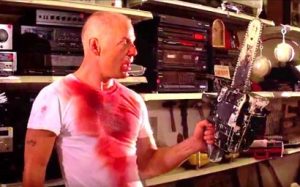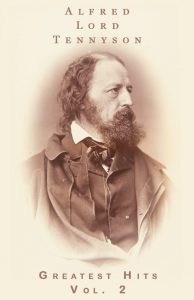By Tony Attwood
I have a problem with “Most of the Time” in that there is a recurring rhythmic theme within it which is (in my head of no one else’s) very close to that used in “Take a walk on the wildside” by Lou Reed. I doubt it was deliberate – these things can just happen, but it gets at me somewhat. In case by any strange chance you have an interest in what I am writing about here, I’ll stick a copy of the old “do do do do do do, do do do do do do do do” at the end. But meanwhile, back to the show…
Some of the tracks I include in this series are put in because I have known them for quite a while and always enjoyed them. Others turn up as I do what passes for research in the run up to each article. And this first version of Most of the Time falls into this category.
Quite possibly everyone else already knows it, but for me it is a wonderful discovery this saturday morning.
Sandra McCracken is described on her website as “Sandra McCracken is a singer-songwriter and hymn writer from Nashville, Tennessee. A prolific recording artist, McCracken has produced 14 solo albums….” So very much my loss in not knowing about her before.
Openings are important. Opening lines of poems, opening paragraphs of books. The first sentence of a speech to a live audience… quite often it seems to me that performers and writers forget this remember this. But this track gets it right, and from this moment on everything is perfection. Having the two singers is an excellent idea, and their voices work together so well over the accompaniment. Brilliant.
Contrast the above with the next version below (Dean and Britta) where everything is submerged behind the notion of using the echo. OK, so echoing is often used as a way of representing what is going on in a person’s head, but line after line after line of it seems overkill, and it doesn’t fit with what the guitars are doing. It’s an all-right idea but it’s just used too much.
Luna on the other hand, give us a straighter version, which works ok, except for the fact that there seems to be a desire to add effects where ever possible, a sudden bit of bass here, a something else there… and the vocalist just seems to be somewhere in the studio, not centrally engaged with the song, but just being.
And so finally we come to Sophie Zelmani. This is what her website says:
“Sophie travels in the same musical timeless space as Leonard Cohen and Bob Dylan. She has refined her distinctive expression for more than 25 years as an artist -the level and consistency of her creation has been steadily high throughout her career.”
Ms Zelmani did a version of the song for Masked And Anonymous and not for the first time I agree with Jochen when he said of this recording, “here everything falls into place.”
This is a case of the voice fitting exactly into the demands of the song. I don’t know if that just happens or it is pure talent on the part of the vocalist
That is a wonderful recording, and having played it again I am not sure I want to spoil the effect by giving the promised Lou Reed do do do thing, but I did promise, so here it is. You can see if there is a link between the rhythms, or whether the old man writing these notes has finally lost it totally. Although if you want to keep the beauty of Sophie Zelmani in your head, just forget I ever mentioned it.
The Dylan Cover a Day series
-
- The song with numbers in the title.
- Ain’t Talkin
- All I really want to do
- Angelina
- Apple Suckling and Are you Ready.
- As I went out one morning
- Ballad for a Friend
- Ballad in Plain D
- Ballad of a thin man
- Frankie Lee and Judas Priest
- The ballad of Hollis Brown
- Beyond here lies nothing
- Blind Willie McTell
- Black Crow Blues (more fun than you might recall)
- An unexpected cover of “Black Diamond Bay”
- Blowin in the wind as never before
- Bob Dylan’s Dream
- You will not believe this… 115th Dream revisited
- Boots of Spanish leather
- Born in Time
- Buckets of Rain
- Can you please crawl out your window
- Can’t wait
- Changing of the Guard
- Chimes of Freedom
- Country Pie
- Crash on the Levee
- Dark Eyes
- Dear Landlord
- Desolation Row as never ever before (twice)
- Dignity.
- Dirge
- Don’t fall apart on me tonight.
- Don’t think twice
- Down along the cove
- Drifter’s Escape
- Duquesne Whistle
- Farewell Angelina
- Foot of Pride and Forever Young
- Fourth Time Around
- From a Buick 6
- Gates of Eden
- Gotta Serve Somebody
- Hard Rain’s a-gonna Fall.
- 42 Heart of Mine
- 43: High Water
- 44: Highway 61.5
- 45: Hurricane
- 46: I am a lonesome hobo
- 47: I believe in you
- 48: I contain multitudes
- 49: I don’t believe you.
- 50: I love you too much
- 51: I pity the poor immigrant.
- 52: I shall be released
- 53: I threw it all away
- 54: I want you
- 55: I was young when I left home
- 56: I’ll remember you
- 57: Idiot Wind and More idiot wind
- 58: If not for you, and a rant against prosody
- 59: A Dylan cover a Day: If you Gotta Go, please go and do something different
- 60: If you see her say hello
- 61: Dylan cover a day: I’ll be your baby tonight
- 62: I’m not there.
- 63: In the Summertime, Is your love and an amazing Isis
- 64: It ain’t me babe
- 65: It takes a lot to laugh
- 66: It’s all over now Baby Blue
- 67: It’s all right ma
- 68: Just Like a Woman
- 69: Knocking on Heaven’s Door
- 70: Lay down your weary tune
- 71: Lay Lady Lay
- 72: Dylan Cover a Day 72: Lenny Bruce
- 73: That brand new leopard skin pill box hat
- 74: Lily, Rosemary and the Jack of Hearts
- 75: Dylan Cover a Day: License to kill
- 76: Like a Rolling Stone
- 77: Love is just a four letter word
- 78: Love Sick
- 79: Maggies Farm!
- 80: Make you feel my love; a performance that made me cry.
- 81: Mama you’ve been on my mind
- 82: Man in a long black coat.
- 83: Masters of War
- 84: Meet me in the morning
- 85: Million Miles. Listen, and marvel.
- 86: Mississippi. Listen, and marvel (again)
- 87: Most likely you go your way


